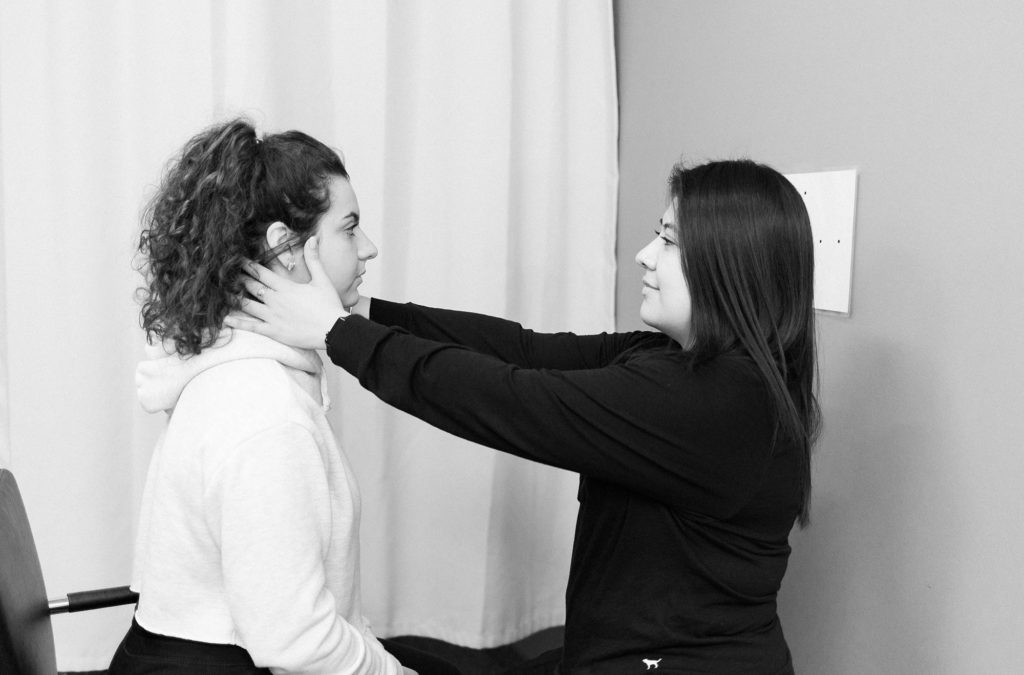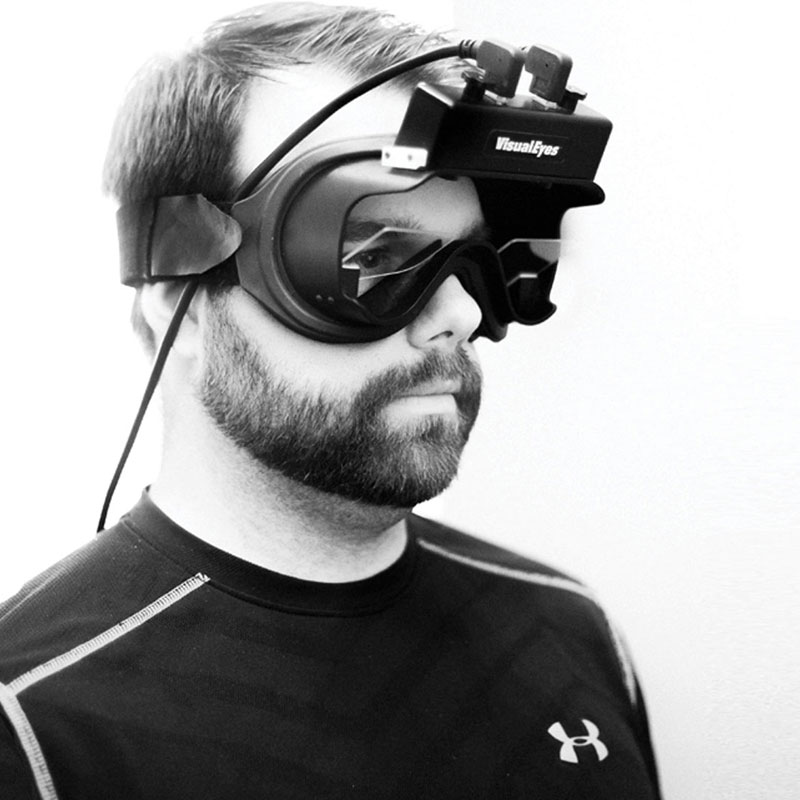Condition: Concussion
NeuroRecovery Program
The Neurologic Wellness Institute specializes in the treatment of concussions and associated symptoms. Patients travel from around the world seeking our 3-hour evaluation and individualized concussion treatment programs.
Symptoms
What is a Concussion?
A concussion is a type of traumatic brain injury (TBI) that affects brain function, often caused by a sudden impact or jolt to the head. Concussion symptoms can vary widely and are generally categorized into two types:
- Signs observed by others: These are symptoms that friends, family, coaches, or medical staff might notice. They include confusion, clumsiness, memory lapses, changes in personality or behavior, slurred speech, or the inability to recall events before or after the injury. Observing these signs in someone is crucial, as they might not realize the severity of their injury.
- Signs reported by the injured person: These are symptoms the individual with a concussion may experience, such as headache, dizziness, blurred vision, nausea, fatigue, or sensitivity to light and noise. They may also report feeling foggy, having trouble focusing, or experiencing emotional changes like irritability or sadness.
Both observed and self-reported symptoms can provide valuable insights into the severity of a concussion. Early recognition and monitoring of these signs are critical for proper recovery and preventing further injury. Continued monitoring of concussion symptoms is vital. Persistent symptoms should be evaluated by a concussion specialist, as untreated concussions can lead to longer-term issues, impacting daily activities and quality of life.
Traumatic Brain Injuries, including concussions, are injuries to the brain that cause abnormal changes in brain function.
Concussions are relatively common, with at least four million new concussions diagnosed each year in the United States.
In fact, 1 out of every 10 athletes will experience a concussion during any given sport season, with only 10% of these concussions resulting in a loss of consciousness (seeing stars, blacking out, etc.).
Concussions can cause long term negative changes in mental, physical, and emotional health.
While the medical recommendation used to be that the only effective therapy for concussions was rest, over the past decade The Neurologic Wellness Institute has pioneered innovative treatments for concussions.
See What Our Clients Are Saying About Us
To watch more testimonials, click here.

Concussion symptoms may be debilitating and force people out of school, work, and their normal social life.
Common symptoms include: headaches, problems with concentration, memory loss, dizziness, balance problems, discoordination, visual problems, poor spatial orientation, slower reaction time, impaired accuracy, decrease in endurance, altered thoughts, emotional disturbances, mood swings, and a decrease in overall health. Concussions also increase the likelihood for drug/alcohol addictions as well as suicides.
What Makes The Neurologic Wellness Institute Different?
Over the past decade, The Neurologic Wellness Institute has pioneered innovative treatments for traumatic brain injuries / concussions.
What makes The Neurologic Wellness Institute different is our personalized approach to care. We understand that every person is unique (unique genetics, and unique environmental factors) and therefore will have a different response to a head injury than someone else. We also understand that each head injury is uniquely different from each other. Therefore, there is no cookie-cutter approach to treating a concussion.
Each concussion patient deserves an individualized treatment. This is why at The Neurologic Wellness Institute, all of our patients undergo a 3-hour initial evaluation to allow our doctors to know which therapies will work best for you. Due to our clinical results in brain injuries, our doctors lecture around the world on our innovative and personalize therapies.
Concussions can be broken down into
7 general categories
01
Vestibular
Brain fog, dizziness, feeling dazed, feeling slow, headaches, nausea, poor balance, poor coordination, ringing in the ears, sound sensitivity, vertigo.
02
Visual
Blurry vision, brain fog, dizziness, double vision, light sensitivity, nausea, poor spatial awareness, sensitivity to motion.
03
Cognitive
Confusion, difficulty concentrating, forgetfulness, memory loss, mental fog, repeat questions, slow processing.
04
Somatosensory
Balance problems, changes in smell, metallic taste, neck pain, numbness/tingling, overwhelmed in crowds, poor body awareness.
05
Emotional
Anxiety, confusion, depression, easily stressed, irritability, more emotional, nervousness, restlessness, sadness.
06
Dysautonomia
Dizziness, lightheadedness, fainting/passing out, chest pain, heart palpitations/heart racing, headaches, brain fog, anxiety, depression, fatigue, sleep disorders, stomach pain, diarrhea, constipation, nausea, vomiting, muscle/joint pain, unstable joints in the body, and discoloration of hands and feet.
07
Combined
Individual areas of the brain communicate with one another. Therefore, dysfunction in one area can disrupt a distant area of the brain causing a mixture of different symptoms that may seem unrelated, and can vary from person to person. Evaluating these areas is crucial to proper identification and treatment of concussion.

Concussion
Evaluation
Our initial evaluation allows us to understand and identify the location(s) of injury. We are able to do this by performing a QEEG brain map (brain wave analysis), a VOG/VNG (digital eye movement recording), computerized neurocognitive evaluation, computerized dynamic posturography (digital balance assessment), hand-eye coordination, and a thorough neurological and physical examination.
Our initial evaluation also includes reviewing any relevant radiological imaging, vestibular/audiologic laboratory testing, as well as blood work.
Concussion
Treatment
Based on our initial evaluation, a personalized management plan is created.
This plan focuses on reintegrating the areas of the brain which have had their connections damaged and reducing inflammation which may have resulted secondary to the injury. Our doctors use a combination of neurological rehabilitation, physical rehabilitation, cognitive exercises, nutrition/lifestyle modifications, and neuromodulation technology to help you return to the highest level of function possible.
*Patients suffering from post-concussion syndrome commonly fly from around the world seeking out the help of The Neurologic Wellness Institute.
Frequently Asked Questions
How long does concussion-related brain fog last?
Brain fog after a concussion can last from a few days to several weeks or longer, depending on the individual and the severity of the injury. Regular follow-ups with a concussion specialist at a reputable concussion rehab center can help manage this symptom and monitor recovery progress.
What treatments can a functional neurologist provide for post-concussion syndrome?
A functional neurologist may recommend several therapies for post-concussion syndrome and concussion pain treatment including:
- NeuroRecovery Program – Combines cognitive and physical therapy to support brain recovery.
- Vestibular Rehabilitation – Focuses on improving balance and reducing dizziness through a specialized concussion rehabilitation program.
- Neurofeedback – Uses real-time feedback to help regulate brain activity.
- Hyperbaric Oxygen therapy – Enhances oxygen flow to reduce inflammation and support healing.

